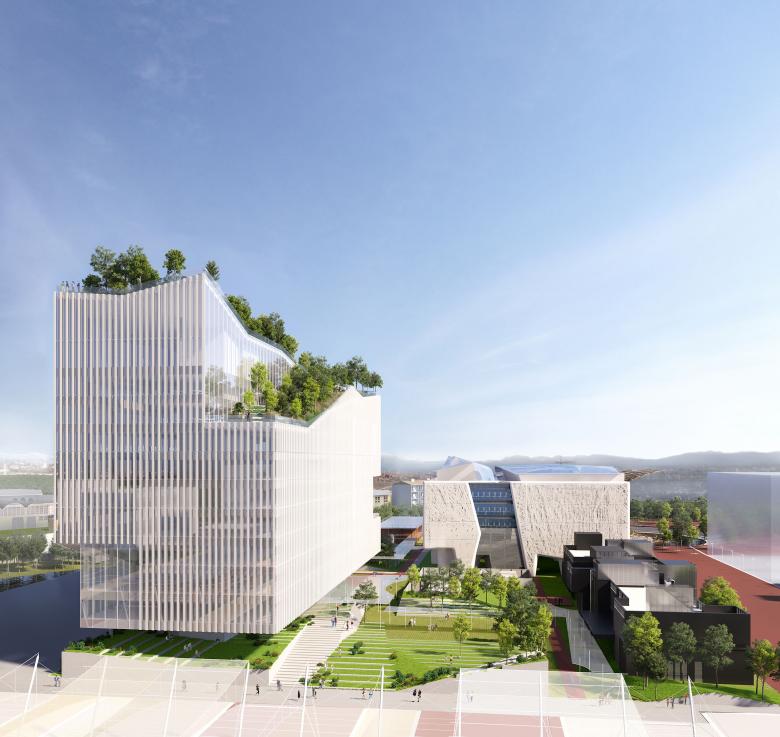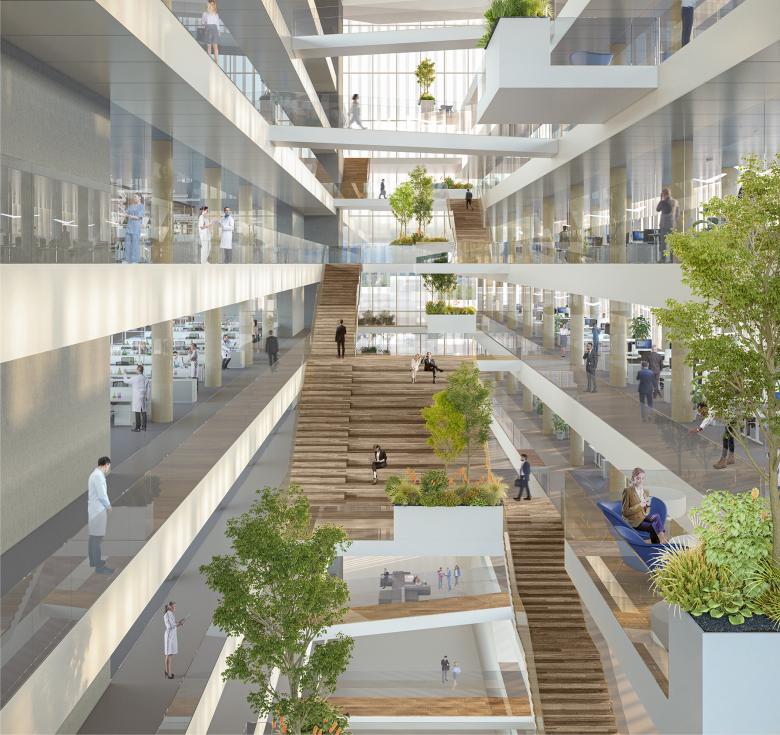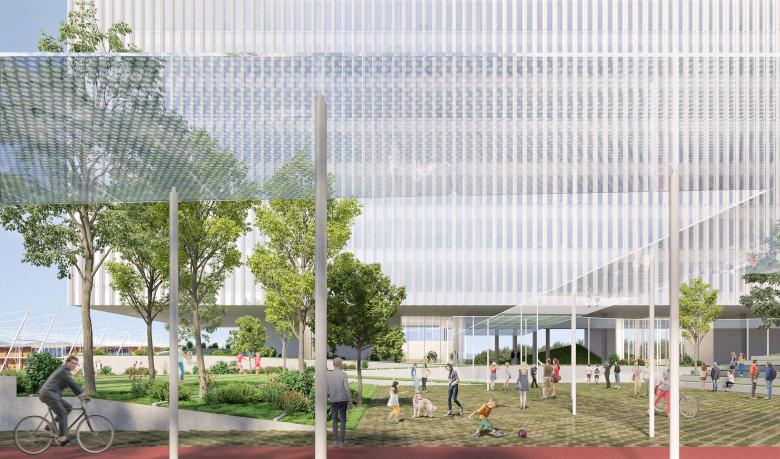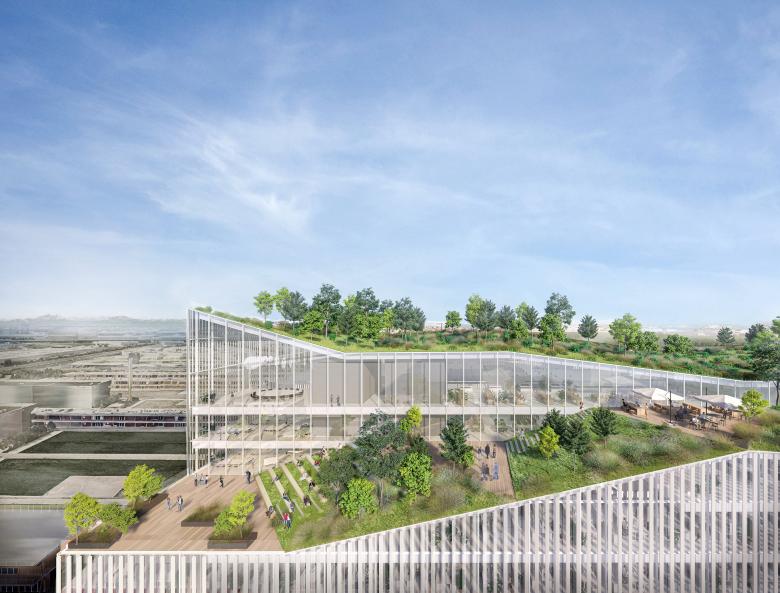A parterre, a covered plaza and a roof garden: Piuarch’s design is organized around these three spaces, which form an uninterrupted sequence from the ground floor up to the top of the building. At ground level, the parterre connects the Human Technopole Headquarters with the other buildings of the Campus, including Palazzo Italia. An artificial landscape of inclined planes suggests a distinction between the movement areas and the rest areas, the amphitheaters. This open space, which in part also continues under the building, provides access directly to the fully glazed atrium, and from there to the covered plaza. The latter is the true heart of the Human Technopole Headquarters, on a functional, relational and symbolic level. On the one hand, this gigantic, full-height empty space, flooded with natural light, is crossed by a system of ramps and walkways that connect all the building levels. At the same time, the covered plaza, which is overlooked by all the offices and laboratories, is a crucial space for interaction and the exchanging of ideas.
The roof garden is the natural complement to the covered plaza: here, the introverted “vertical campus” opens onto its surroundings and the city and the characteristic broken profile of its crown makes the Human Technopole Headquarters highly recognizable, a new architectural icon for the future MIND. Set around the backbone of these three public and collective spaces are the offices and laboratories of the Human Technopole Headquarters, arranged in two distinct compact blocks, both parallel to the covered plaza. The Human Technopole Headquarters is conceived as a highly sustainable ecosystem. The greenery-covered areas at ground level and on the roof allow the correct management of rainwater. The photovoltaic systems installed on the shelters on the ground floor, on the facade and on the roof contribute significantly to the building’s energy needs. The angled sun shades along the façades calibrate the amount of sunlight entering in the different seasons of the year.
Human Technopole Headquarters&Campus
Volver a la lista de Proyectos- Ubicación
- Milano, Italia
- Año
- 2020
- Cliente
- Arexpo - Fondazione Human Technopole



